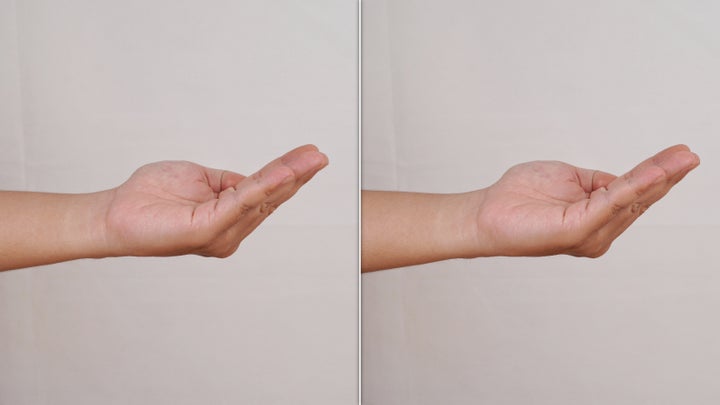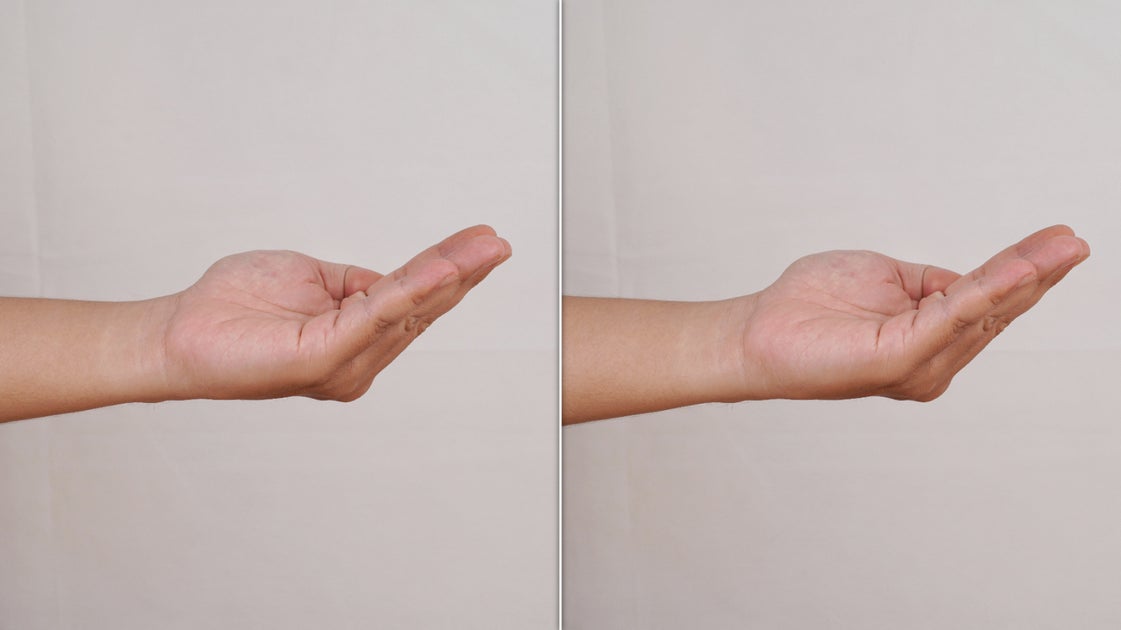Social media is full of health hacks for better sleep, clear skin, a functioning gut, you name it. Lately, a tip for aging and cognitive function is gaining traction.
Videos showing hand and finger exercises have racked up millions of views on TikTok and Instagram, with users suggesting these movements can help prevent dementia or Alzheimer’s disease.
The exercises include things like alternated clapping, tapping, arm circles and pointing your fingers in different directions. And although they might look easy enough, exasperated folks in the comments sections highlight that some of these motions are a lot harder than they appear.
But does failing at intricate finger movements and hand coordination exercises mean you’re cognitively doomed? And can these exercises really ― as the captions claim ― prevent dementia or Alzheimer’s? HuffPost asked a neurologist to weigh in.
“While there are a few studies showing that aspects of mild cognitive impairment might be improved with these types of hand exercises, I would put forward that there is nothing magical about these movements,” said neurologist Dr. Chris Winter.
Hand exercises are a way to practice motor skills, which can be beneficial for maintaining cognitive abilities as we age. But it might be a stretch to suggest that specific movements are going to remove your risk of developing dementia or Alzheimer’s disease.
 Can simple hand exercises really prevent dementia?
Can simple hand exercises really prevent dementia?
Winter explained that hand and finger coordination can be beneficial as part of a larger pattern of mental and physical activity, but it’s not the hand gestures themselves that matter ― it’s the engagement and concentration involved.
“Learning to play the piano or other activities that force concentration and the practice of improved hand/eye coordination are potentially just as useful,” Winter said. “I recommend that people stay active and engage in appropriately challenging activities. Learn a new language, pick up a guitar or a used set of drums, play pickleball. If you have the capacity to do these things, get off of TikTok and go do these things instead.”
Brain function is less about hand gestures and more about movement and mental engagement that challenge your mind and body overall.
Winter also emphasized that TikTok viewers shouldn’t mistake their inability to do some of these hand exercises as a red flag for cognitive decline. If you have trouble alternating pointing your thumbs and pinkies, that doesn’t mean you’re “already developing dementia,” as some commenters fear.
“I think there are a variety of reasons why one could not do these gestures ― or rub their stomach while patting their head,” he said. “While someone with significant dementia is probably not likely to be able to do these activities, the fact that someone struggles with coordination does not indicate dementia or progression in this direction. Ability to pat your hands together is not a diagnostic test for cognitive decline.”
So while those quick coordination challenges might be fun or stimulating, experts say, your best bet for brain health still lies in the basics: regular exercise, quality sleep, a balanced diet and staying mentally and socially active. And what exercise and mental stimulation mean can vary based on individuals’ abilities.
“If you only have the capacity to practice hand gestures, then that’s OK too,” Winter said.
YourSupportMakes The Story
Your SupportFuelsOur Mission
Your SupportFuelsOur Mission
Join Those Who Make It Possible
HuffPost stands apart because we report for the people, not the powerful. Our journalism is fearless, inclusive, and unfiltered. Join the membership program and help strengthen news that puts people first.
We remain committed to providing you with the unflinching, fact-based journalism everyone deserves.
Thank you again for your support along the way. We’re truly grateful for readers like you! Your initial support helped get us here and bolstered our newsroom, which kept us strong during uncertain times. Now as we continue, we need your help more than ever. .
We remain committed to providing you with the unflinching, fact-based journalism everyone deserves.
Thank you again for your support along the way. We’re truly grateful for readers like you! Your initial support helped get us here and bolstered our newsroom, which kept us strong during uncertain times. Now as we continue, we need your help more than ever. .
Already contributed? Log in to hide these messages.
But just remember that the real “hack” for keeping your brain sharp isn’t a social media exercise ― it’s a holistic approach to living a healthy, mindful and engaged life.

